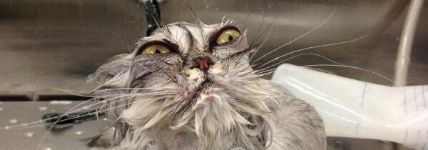Most of what you're planning to say is perfectly polite and fine. Also, those are good gifts to bring. The Japanese concept of an
omiyage (souvenir) is a food item, preferably something particular to your locality; maple syrup is a good choice since it's a local product, and although it can be gotten in Japan it is expensive and comes in very small quantities. The phrase you're planning on using to present it is fine, or "kore wa hon no kimochi desu" is another standard phrase you can use when giving gifts. If you want to be particularly sophisticated, use "kore wa hon no kimochi desu" when you first present the souvenirs, and then if they compliment the souvenirs or say thank you, then say "iie, tsumaranai mono desu" (literally "no, it's a trifling thing"). The proper way to respond to compliments in Japan is to deny or downplay the compliment, but it is pretty hard to remember to say "no" instead of "thank you" when someone compliments you, and Japanese people tend to be very impressed when Westerners know to downplay their own abilities instead of just saying "thank you."
Just one thing, though:
DarkNozomi wrote:And when I introduce myself I should say "Hajimemashite. (My name)-san desu. Douzo yoroshiku onegaitashimasu"?
For the love of Japan, never, EVER attach an honorific suffix to your own name. You're probably already aware that humility is extremely important in Japanese culture, and part of that is addressing others with honorifics such as -san but NOT yourself. In fact, you also shouldn't use honorifics when talking about anyone who would be considered part of your in-group (e.g. your family) to someone else. For example, Japanese people when talking
to their parents will address them as
otou-san or
okaa-san, but when speaking about their parents to someone else will say "uchi no chichi" or "uchi no haha." But back to the subject, just don't use
-san when saying your name. You should give your name with no suffix attached.
You might also want to read up a bit on Japanese etiquette and table manners to avoid mistakes such as sticking chopsticks straight down into white rice, pointing with your chopsticks, and so on. These pages all have some very good pointers:
http://www.wikihow.com/Avoid-Etiquette- ... s-in-Japanhttp://www.japan-guide.com/e/e2005.htmlhttp://www.wa-pedia.com/culture/japanes ... ette.shtmlAnyways, overall you should be able to give a very good impression with those phrases; your friend's parents will probably be very pleased with the effort that you are putting into introducing yourself properly and being culturally sensitive. If you know any Japanese besides these phrases, just make sure to use desu/masu form when talking to your friend's parents and you'll be fine. Oh, and do take Yuki-Anne's advice about bowing. The people you meet probably won't expect your technique to be perfect, but just make sure that you
do bow, and when talking to someone who is older or has higher status than you (like your friend's parents), you should bow a little bit lower and longer than they do.
DarkNozomi wrote:Also, if anyone knows the deal with taking a girl out on Christmas eve in Japan, is it like Valentines day here? I don't think it is because golly she agreed a bit too enthusiastically. But we're just going to Odaiba to ride the ferris wheel and see the rainbow bridge
Sure sounds like the Japanese idea of a date to me. As Yuki-Anne said, Christmas Eve is seen as a day for couples, and people who are dating typically try to spend it with their boyfriend/girlfriend.
I hope you have a great trip; Japan is awesome, and Tokyo especially so.



